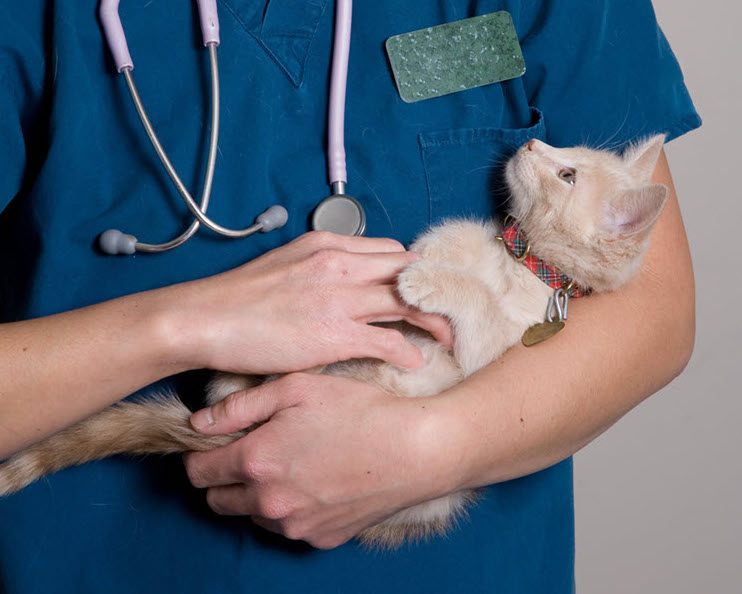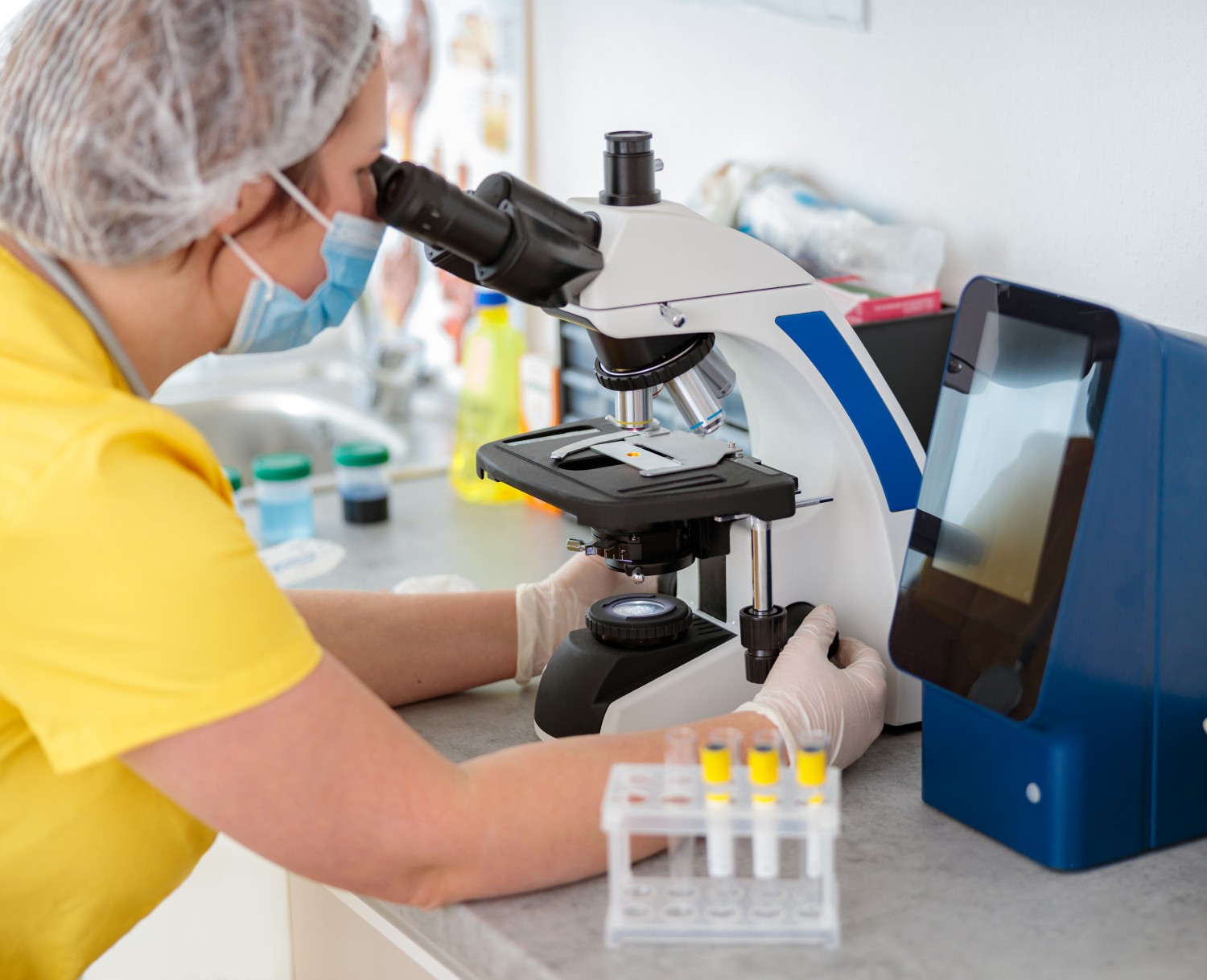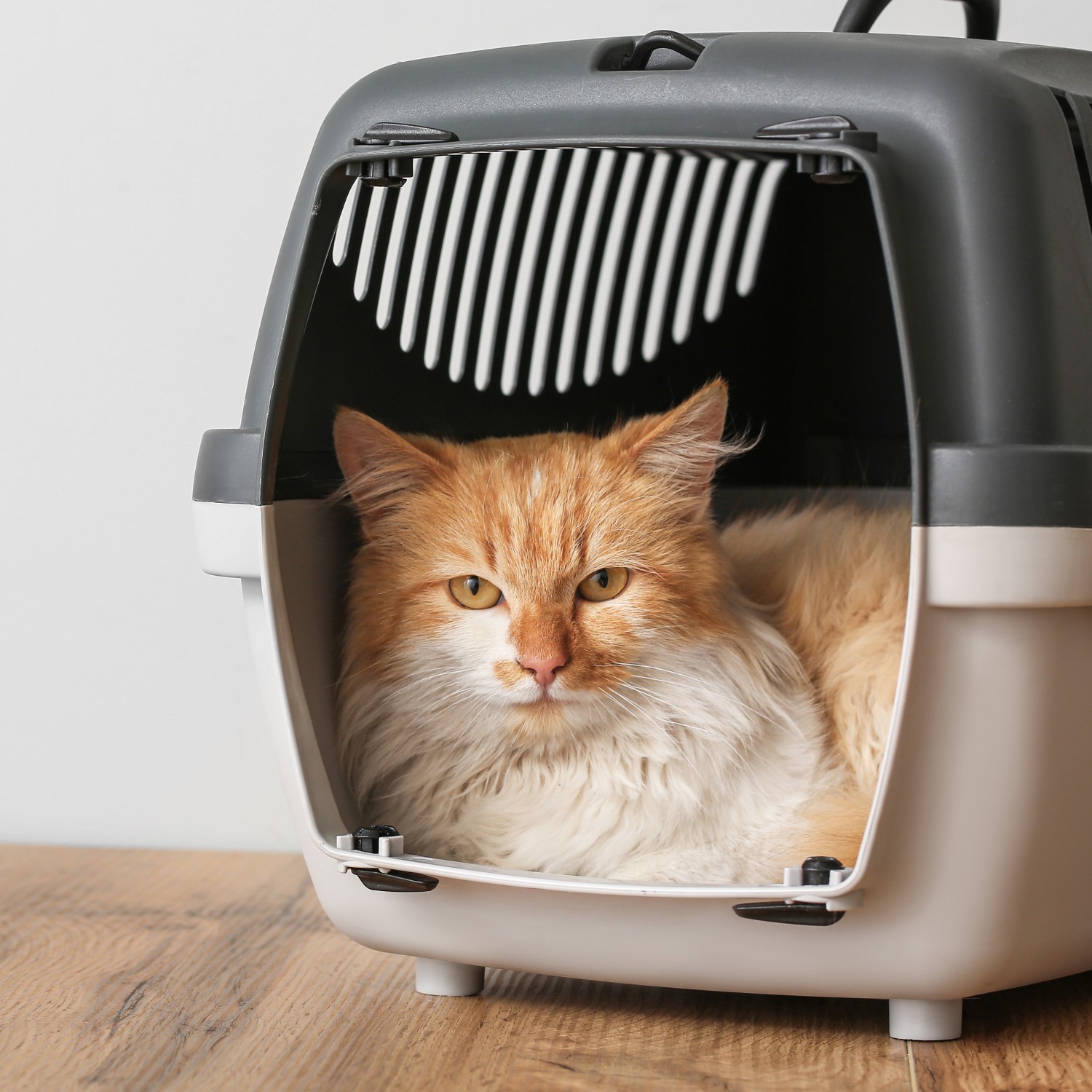|
 The following are a list of the more common laboratory tests used in the veterinary clinic. These tests allow the veterinarian to assess your cat’s overall health and screen for diseases of the liver and kidney, diabetes, infection, cancer, thyroid function and other hormonal imbalances. Blood tests are often recommended in healthy cats, in cats about to undergo anesthesia and in sick cats. Interpretation of multiple tests in conjunction with one another (profiling) allows quick and noninvasive assessment of the major organ systems of the body. Because early detection of disease is important for managing the condition, your veterinarian may recommend frequent screening even in apparently healthy cats, especially as your cat ages. The following are a list of the more common laboratory tests used in the veterinary clinic. These tests allow the veterinarian to assess your cat’s overall health and screen for diseases of the liver and kidney, diabetes, infection, cancer, thyroid function and other hormonal imbalances. Blood tests are often recommended in healthy cats, in cats about to undergo anesthesia and in sick cats. Interpretation of multiple tests in conjunction with one another (profiling) allows quick and noninvasive assessment of the major organ systems of the body. Because early detection of disease is important for managing the condition, your veterinarian may recommend frequent screening even in apparently healthy cats, especially as your cat ages.
Cheshire Cat Feline Health Center offers the latest technology house laboratory.
Blood Chemistry
These common blood tests allow veterinarians to assess your pet’s overall health. Blood tests are often recommended in healthy pets, in pets about to undergo anesthesia and in sick pets. Interpretation of multiple tests in conjunction with one another (profiling) allows quick and noninvasive assessment of the major organ systems of the body.
ALT, AST, ALKP, GGT are liver enzymes that help indicate if there is a problem with the liver. They may also be abnormal with inflammation of the pancreas.
Total Bilirubin tests for jaundice which often indicates a liver disorder (with or without concurrent pancreas disease) or damaged red blood cells.
Total Protein, A/G Ratio, Albumin, Globulins are proteins. The albumin level may be decreased with disorders of the intestine, kidneys, liver, or decreased nutritional intake. The globulin level may also decrease with intestinal disorders or increase in response to inflammation.
Creatinine, BUN and Phosphorus levels indicate the function of the kidney. These values should be checked in conjunction with a urinalysis for the most accurate assessment.
Calcium and Calcium/P04 Ratio Elevated calcium levels can indicate a wide variety of diseases. The most common cause is lymphosarcoma, a type of cancer.
Glucose is the blood sugar. Increased blood sugar may indicate diabetes but cats especially may show an elevation due to stress. Low glucose levels may indicate any number of diseases including liver disease, severe infection, certain cancers, and malnutrition.
Amylase and Lipase are pancreatic enzymes that indicate inflammation of the pancreas (pancreatitis.)
Sodium, Potassium, Chloride and the Na/K Ratio are important tests that determine the levels of electrolytes. Animals that are dehydrated or are loosing fluids due to vomiting, diarrhea or kidney disease are at risk for low electrolytes. Potassium levels are especially important to monitor.
CPK is a muscle enzyme that when increased may indicate muscle break down, injury or inflammation.
Thyroid Levels (T4) are used to monitor the function of the thyroid gland. Hyperthyroidism (high levels of thyroid production) is common in cats. Often, the T4 level is used as a screen and more detailed tests may be performed to assess the function. The thyroid hormones affect weight gain/loss, kidney function, and heart muscle.
 Complete Blood Count (CBC) Complete Blood Count (CBC)
The complete blood count (CBC) is used to evaluate the red and white blood cells and determine the number of each type of cell present. Blood analysis allows evaluation for anemia, nutritional status, and presence of inflammation, stress, and inability to fight disease, specific diseases, and clotting defects. The objective data obtained from a CBC can be helpful in monitoring ill patients undergoing therapy; therefore, serial CBC requests are common.
WBC (white blood cells) fight infection. The total number of cells and the relative percentages of the different types of white blood cells can help diagnose infection, stress, leukemia (a type of blood cancer) and other bone marrow disorders. The types of WBCs are neutrophils, monocytes, bands, eosinophils, lymphocytes and basophils.
RBC (red blood cells) together with hemoglobin,carry oxygen and carbon dioxide throughout the body. A count of the red blood cells or hematocrit (HCT) is used to determine anemia, a low RBC count. The appearance (shape and size) of the RBC is also evaluated to help determine the type of anemia present.
Platelets are necessary for the bloods clotting function and the platelet estimate is another important part of the CBC test.
Urinalysis 
Urinalysis is very important in evaluating the overall kidney function especially when done in conjunction with blood tests. The first signs of kidney degeneration are evident upon the microscopic evaluation of the urine. Specific gravity is also determined to assess how efficient the kidneys are working. Along with blood tests, the urinalysis can help screen for diabetes by detecting sugar and ketones in the urine. Additionally, urinalysis can help determine if there is a urinary tract infection or inflammation as well as help to determine if an animal has diabetes. Occasionally, a urine culture will be ordered after the urinalysis has been performed. This test, sent to an outside laboratory, helps identify what type of bacteria is growing in the urine and which antibiotic treatment will be most effective.
|